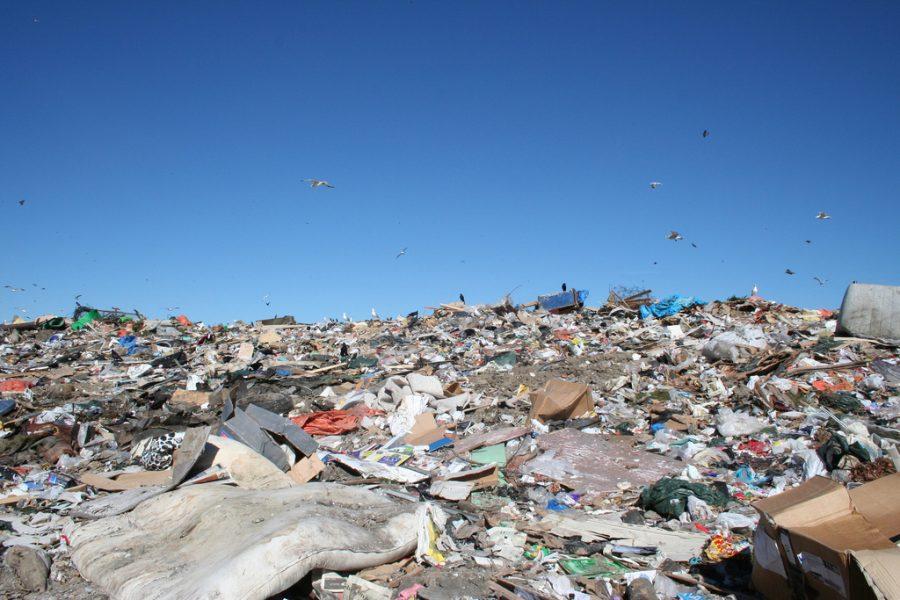Michigan Outlaws Banning Plastic
February 3, 2017
A recent Michigan law signed by Lt. Gov. Brian Calley (while Gov. Rick Snyder was out of state) prohibited local governments from banning plastic bags and containers within grocery stores. This bill was passed to favor Michigan businesses, but many, such as Biology and AP Environmental Science teacher Mr. Brandon Shurter, have become concerned about both the governmental and environmental impacts of such a law.
“I think the decision to not let local governments ban plastic bags takes away from local control,” Mr. Shurter said. “I also think it is short-sighted because of the effect plastic bags have on our environment. Many cities around the country and world have outlawed plastic bags; it looks like Michigan is taking a step backward.”
The environmental concerns Mr. Shurter shares with many Americans in light of the passing of numerous bills that have disastrous effects on the natural habitats of animals are more than valid. According to a study by International Union for Conservation of Nature, of the production of 1 trillion produced plastic bags worldwide every year, 70 percent will end up in landfills or infesting the world’s waterways. The 46,000 pieces of plastic found in every square mile of ocean due to this water infestation can kill up to 1 billion seabirds and mammals each year.
Junior Laura Eshelman is also among the many concerned about the impacts of this law, especially on Michigan’s valuable resource of the Great Lakes.
“I’m not saying that this law will increase pollution, but it definitely won’t decrease it, and the plastic used due to it will most likely end up in the already over-contaminated great lakes,” Eshelman said. “Obviously this will hurt the sea life in the resource, but if you don’t want to look at it from an environmental standpoint, eating fish that have been around this pollution from the Great Lakes can cause health problems that will directly impact you.”
Junior Grace Murphy recalls a documentary shown in AP Government that made her more aware of the impacts of pollution on nature – with one of the most shocking statistics stated within it being that if the world continues to produce plastic at the same rate, the weight of plastic will outweigh that of fish by the year 2050.
“The documentary definitely made me more aware of all the negative effects of plastic pollution,” Murphy said. “At one point they showed the inside of a dead bird, and it’s stomach was filled with plastic such as bottle caps or entire pill bottles because they don’t know any better and think it’s food. It’s terrible for not only fish and other aquatic life, but for animals that live around beaches–so many of them die because of our carelessness.”
The fact that plastic can take centuries to decompose also worries Mr. Shurter in relation to this law, and our careless treatment of the environment in general.
“Plastic does not degrade quickly–it can take hundreds to thousands of years to break into tiny pieces,” Mr. Shurter said. “Then it can be ingested by animals in the food web, especially in aquatic systems, as well as adding to our growing trash problem. This new law may not increase pollution, but it does take local municipalities’ ability to decrease it, which can be equally as bad in the long run.”
To combat the negative impacts of plastic, many, such as Eshelman, choose to use paper bags when shopping due to their ability to be easily recycled.
“It’s definitely beneficial if you use different options when you’re shopping, like paper bags as plastic is almost non-biodegradable, and paper can be recycled or it can decompose,” Eshelman said. “You’re killing trees, yeah, but you can put that back into the environment through recycling it or using decomposed material for compost.”
Murphy suggests selling and using recycled plastic in grocery stores to help the environment while keeping everything convenient.
“We could use more recycled plastic for not only checkout bags, but bags that different snacks are packaged in,” Murphy said. “We could also make laws requiring to you to recycle plastic because recycling it is a lot better for the environment without taking away from the convenience aspect.”
Mr. Shurter also suggests shopping with reusable canvas bags to help make a change in the destruction plastic pollution can cause
“I bring reusable cloth grocery bags to the store when I shop; they’re available at many grocery stores for $1,” Mr. Shurter said. “Just think about how many plastic bags you use during a large grocery shopping trip. You can really do a big part by using cloth reusable bags.”
If both citizens and government officials are more educated on the issues that surround the use of plastic bags, many, like Mr. Shurter, hope they will one day pass bills that help the environment instead of always taking the side of businesses.
“People need to be educated and our government needs to take the side of the environment sometimes,” Mr. Shurter said. “Although it often seems like it in the government, money isn’t always the most important thing.”






